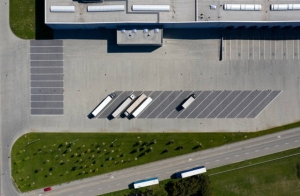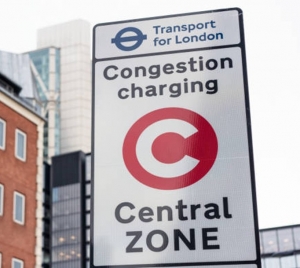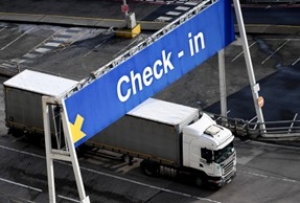Poland to Develop Europe’s Largest Logistics Hub in Sławków
Poland has announced plans to create the largest transshipment logistics hub in Europe, with major investment going into the expansion of the Euroterminal in Sławków, located in the Silesian Voivodeship. Prime Minister Donald Tusk confirmed that the state, alongside its partners, will invest around €1 billion to significantly upgrade the terminal's infrastructure and nearly double its current capacity.
Speaking during a visit to the site, Tusk said the project was not about breaking records but about seizing a strategic opportunity for Poland. He underlined the importance of state control over such a key asset, describing the development as a “golden opportunity” for the country’s economic and logistical future.
A key motivation behind the expansion is Poland’s ambition to play a central role in the future reconstruction of Ukraine. Tusk said Poland is keen to both support Ukraine and ensure it gains from the economic benefits that will follow. He highlighted the need to avoid repeating past mistakes, such as being excluded from post-conflict rebuilding efforts in other regions.
Strategically located at the intersection of broad and standard gauge rail lines, the Sławków terminal is already a key hub for freight moving between Asia and Western Europe. Once complete, its capacity will increase from 285,000 to over 500,000 TEU annually.
TfL Proposes £18 Congestion Charge to Tackle Central London Traffic
Transport for London (TfL) has put forward plans to increase the Congestion Charge to £18 a day from 2 January 2025 - a 20% rise from the current £15. This would be the first increase since 2020, when the charge went up from £11.50. The fee applies to vehicles entering central London between 7am and 6pm on weekdays and from 12pm to 6pm at weekends.
Under the new proposal, motorists would pay £18 if the charge is paid on the day of travel or in advance, or £21 if paid by midnight on the third day. Drivers failing to pay within 48 hours would be fined £180, or £90 if settled within 14 days. TfL also plans to link future increases to inflation and public transport fare changes.
Electric vehicles, which were previously exempt, will begin paying the charge from January, though those registered with Auto Pay will receive a 25% discount. Vans, HGVs, and other large vehicles will benefit from a 50% discount. From March 2030, these discounts will reduce further to 12.5% and 25% respectively. TfL also plans to simplify how electric vehicle discounts are applied by using DVLA data automatically.
The Federation of Small Businesses has criticised the rise, calling it a harsh blow for firms already facing financial pressures. Meanwhile, environmental groups have welcomed the move, saying it reinforces London’s commitment to clean air and sustainable transport. A public consultation is open until 4 August.
Transport Sector Pushes for Easing EU Travel Limits Ahead of EES Rollout
Concerns are rising within the UK transport and touring industries over the looming enforcement of EU travel restrictions. The Entry/Exit System (EES), expected to launch in November, will enforce the 90/180 rule - limiting stays in the Schengen Area to 90 days within any 180-day period. This has major implications for British hauliers, coach operators, and touring crews supporting UK performers across Europe.
Unlike EU artists entering the UK under a single immigration framework, UK performers must navigate varying entry rules across EU member states. The British government is working with industry voices to push for more flexible arrangements, aiming to make travel smoother for creative professionals and their support teams. These discussions are expected to feature in upcoming UK-EU talks, with calls for visa-free movement and streamlined customs processes.
Although some EU countries have shown hesitation towards the UK’s proposals, there is interest in reaching a broader agreement, particularly around youth mobility between the UK and EU. This has encouraged hopes of a tailored exemption or visa scheme to avoid disrupting international tours.
Industry leaders are calling for solutions that will maintain the UK’s strong touring presence in Europe and protect the livelihoods of those working behind the scenes in transport and logistics.
AI Adoption Surges in Logistics, Boosting Productivity and Morale
Logistics professionals are embracing artificial intelligence at a rapid pace, with a recent study revealing that 62% of information-handling staff in the sector are already using it—and nearly all report positive results. According to research from The Access Group, 97% of logistics workers using AI say it has improved their working life.
Although the logistics industry trails the tech sector in AI uptake (74%), it far outpaces sectors like not-for-profit and health and social care, where adoption is below 30%. Within logistics, employees highlighted reduced workloads, improved focus, and increased productivity as the main benefits. Better communication and enhanced customer service also ranked highly.
ChatGPT emerged as the most widely used AI tool, with more than half of respondents relying on it. Many users said it helped ease workplace stress. However, concerns remain - particularly around the risk of job losses (51%) and data privacy (46%).
Industry leaders say AI offers a transformative opportunity. Jarrod Adam of Unleashed noted that AI can help small and mid-sized logistics firms overcome skills shortages and cut costs. Meanwhile, Access Group’s Marko Perisic stressed the importance of proper training and secure platforms. With the right approach, AI can foster innovation, efficiency, and safer data handling across the logistics workforce.









